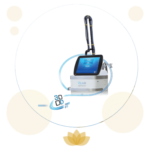
The Meaning of Sleep Apnea
Sleep apnea is a potentially fatal medical disorder in which you repeatedly cease breathing (apnea) or have reduced breathing (hypopnea) while sleeping. A person with sleep disorder may have trouble breathing hundreds of times every night. Breathing pauses often average 10 to 30 seconds, although some might last a minute or more. Sleep disorder, if left untreated, may deplete your brain and body of oxygen, resulting in health concerns. The implications of not obtaining enough restorative sleep may also have an impact on your overall quality of life. The University of Utah estimates that 80 percent of moderate to severe sleep apnea patients go undetected.What Are the Many Kinds of Sleep disorder?
Sleep disorder is classified into three categories. While having diverse origins, their symptoms are similar. Obstructive Sleep Apnea (OSA) Obstructive sleep apnea (OSA) occurs when the muscles in the back of your throat, which usually relax during sleep, collapse. This obstructs your airways and may lead you to stop breathing for a while. The most frequent kind of sleep apnea is OSA. Central Sleep Apnea is a kind of sleep apnea. Central sleep disorder(CSA) is caused by your brain failing to provide the necessary signals to instruct you to breathe. Unlike obstructive sleep apnea, which causes airway blockage, central sleep disorder is typically not mechanical in origin. Central sleep apnea is uncommon and affects elderly men more than younger or females. Sleep Apnea with Complications Complex sleep disorder (also known as mixed sleep apnea) is a mix of obstructive and central sleep disorder. A person suffering from complicated sleep apnea has both mechanical abnormalities that restrict their airway and brain misfires that make breathing difficult. Complex sleep disorder is also known as treatment-emergent central sleep apnea since it may develop when using a positive airway pressure (PAP) or continuous positive airway pressure (CPAP) device to treat obstructive sleep apnea.Symptoms
You’ve probably heard that individuals with sleep disorder snore a lot. Although this is true, not everyone who snores has sleep apnea, and not everyone who snores has sleep disorde. Don’t depend just on snoring as a clue. These are some sleep disorder symptoms to be aware of:- obnoxious snoring
- Wake up grasping for breath Unrest and frequent waking
- waking up often to urinate (nocturia)
- A headache in the morning
- The mouth is parched.
- Daytime drowsiness that is excessive and inexplicable
- Mental fog, as well as other mood problems such as irritation or despair
- Trouble concentrating when awake







